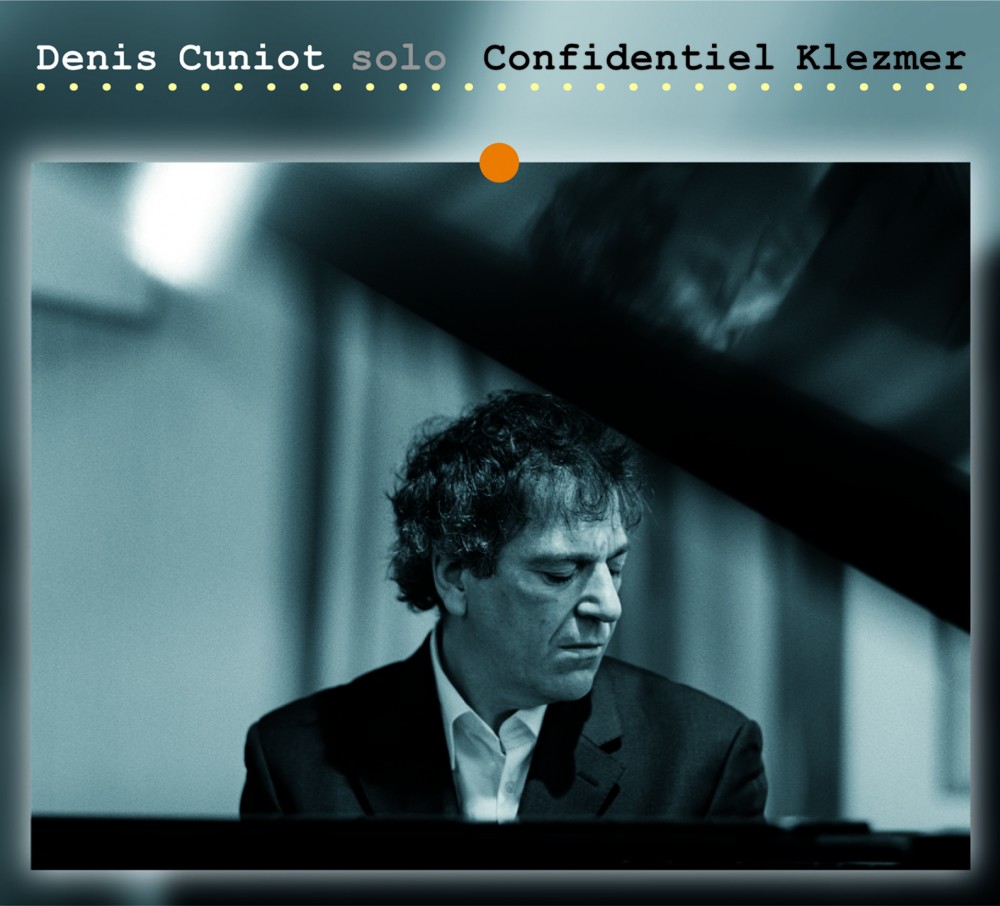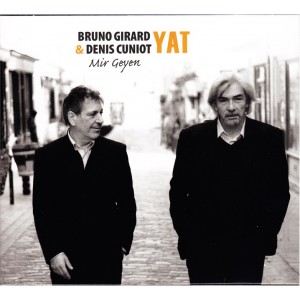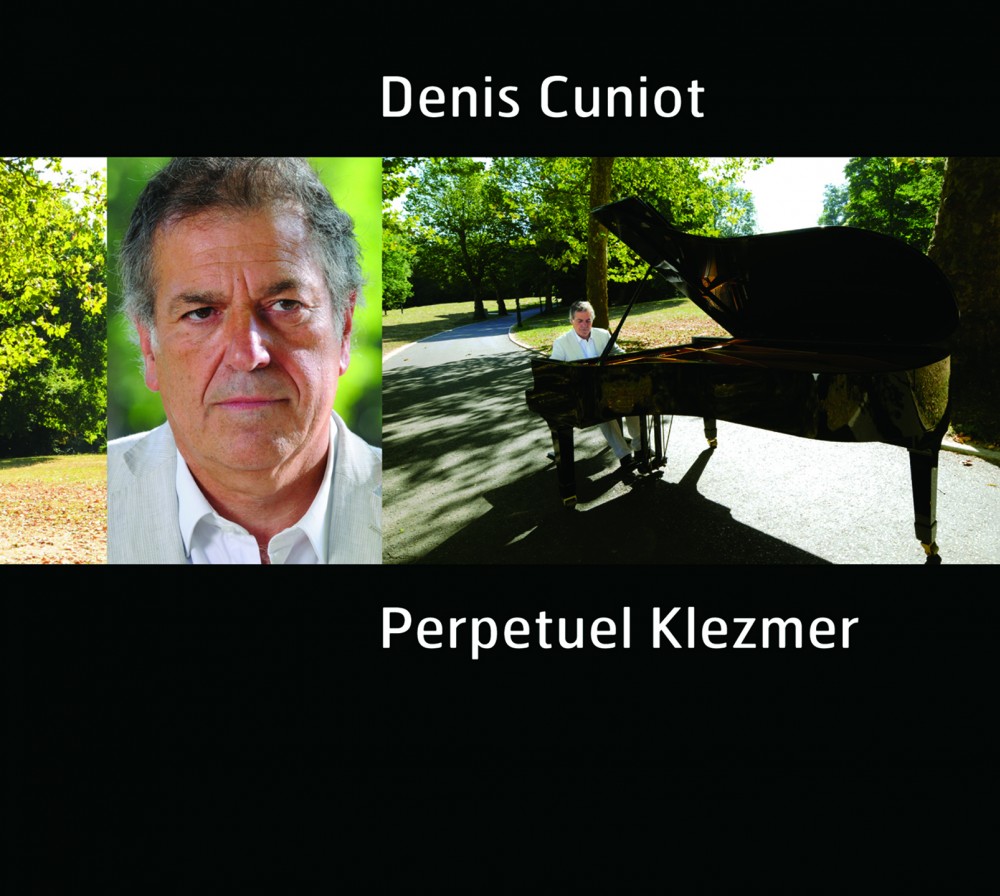Denis Cuniot plays Nano Peylet: 40 years of Klezmer and friendship
40 years with Nano Peylet
From 1983 onwards, I was one of the main initiators of the revival and recognition of klezmer music in France by co-founding a duo with Nano Peylet, at the time clarinet and saxophone player with the jazz group ARCANE V, and later clarinet player in Bratsch. It was in my "jazz years” that I met Nano.
In his family history he had no connection with Judaism, but during his studies and from the beginning of his career he had met every musician and singer in 1970s Francewho had an authentic knowledge of Yiddish and Klezmer music: Eddy Shaff, Teddy Lasry, Maurice Delaistier, Youval Micenmacher, Ezra Bouzkela, Talila, Jacinta, Ben Zimet... And he played in the two big bands of that time: Kol-Aviv and Adama.
His jazz teacher was Philippe Gumplowicz (guitarist of ARCANE V), who later became a university professor and a great connoisseur of Ashkenazi Jewish culture. Nano also knew Giora Feidmann and his recordings very well. He loved this Ashkenazi culture. His friends and colleagues who came from this world told him about it and explained its illogical logic to him. Through them, he had already built up a large repertoire of Yiddish and Hebrew songs and nigunim, klezmer melodies, theatre and dances music.
This encounter with the sounds of Free Jazz, a friendly and musical encounter, was to have the greatest influence on my artistic life, since it was through and thanks to Nano Peylet that klezmer was revealed to me.
This friendly musical love at first sight happened to me when, following a sugestionfrom Nano to put together a klezmer repertoire (Hassidic, as we said at the time), I did my first rehearsals. I understood then that I had found my artistic path, my place of inspiration and permanent work, my daily bread. This was where my militant musical commitment began.
Militant because at that time, nobody in France — including in the Jewish community — knew this music. I was aware that it had been annihilated in the countries from which it originated and that we had the task and duty to make it heard again, to revive it, to recreate it: a duty of memory, a duty of today. Memory of a repertoire, of a musical genre. Memory of musicians and poets who have disappeared.
Musical, because since then, almost forty years later, I have made a dozen records, all published by Buda Music: music for films and theatre, several hundred concerts, as well as conferences, expressing in various forms and formats my attachment to and creativity in the klezmer and Yiddish universe.
Today, I am happy and moved to make my contribution to the questions that Nano Peylet asked us in the early 1990s:
— What had traditional music been before it became traditional?
— How can we make something new out of something old?
— Is traditional music condemned to be old?
— Could we not compose old music right away?
— Can we make new with old, new with new, but also old with new?
In this way, he came up with the concept of 'pre-traditional music'.
Today I asked him, once again, to compose some works for me and to give me some arrangements. This record.
Denis Cuniot
40 years with Denis Cuniot
If you were a musician in the 1980s and wanted to be part of the avant-garde, you had to sound "jazz". A pianist who I used to talk with a lot reinforced my idea that there were other modes of expression that had not yet been explored.
One of these modes in particular triggered strong emotions in me because of the simplicity and beauty of its melodies: that was Jewish music, which has since found the name Klezmer music. At that time (the 80s) I was doing free jazz in the group ARCANE V. We always included one, often two, pieces of traditional Jewish music in our concert programme. There were two reasons for this. The first was aesthetic: to go from free to trad, to return to free, to return to trad, was a pleasure, even a delight, constantly renewed. The second was much more intimate. Half of the group was of Jewish origin, and the idea remained very present that the Shoah should never fade from memory.
The pianist I mentioned earlier is called Denis Cuniot, and we founded a duet of exclusively Jewish music. We had to work quite quickly, given the lack of written records of the repertoire (inevitably, with oral tradition): we had to compose the music since there was no longer any tradition of musicians wandering from village to village with a hundred or so melodies gleaned from right and left, as chance took them.
Playing in front of a seated and silent audience was new to them. They would live with music, sometimes dance to it, they would eat, they would make noise, nothing would stop them from playing. And, as musicians always find ways of adapting to new ways, the world saw their music arrive in cinemas and brasseries, then on television, in youth centres, cultural centres and festivals, and all this mixing allowed it to be structured around new genres which led to the emergence of numerous compositions among which the public was able to discover klezmer piano music, thus finding itself faced with an infinite number of possibilities that would have been difficult to imagine just twenty or thirty years earlier. I love the piano as much as I love the clarinet, on which I was lucky enough to be able to develop a phrasing derived from the oriental aspect of klezmer music. I am now pursuing this research on the piano, which offers an extraordinary palette of colours, allowing me to develop my ideas and also, of course, bringing me the ideal interpreter in the person of Denis Cuniot, a pioneer of this art and a lifelong friend, who is ready to embark on extremely arduous work in order to adhere as closely as possible to scores which can sometimes be very complex.
Nano Peylet


